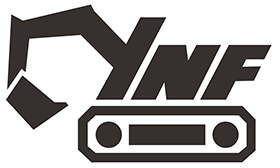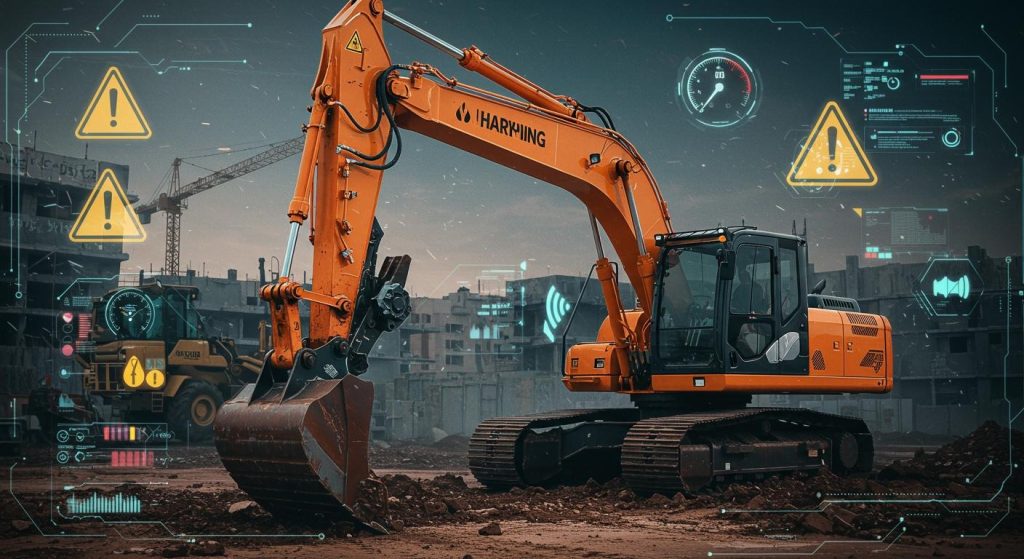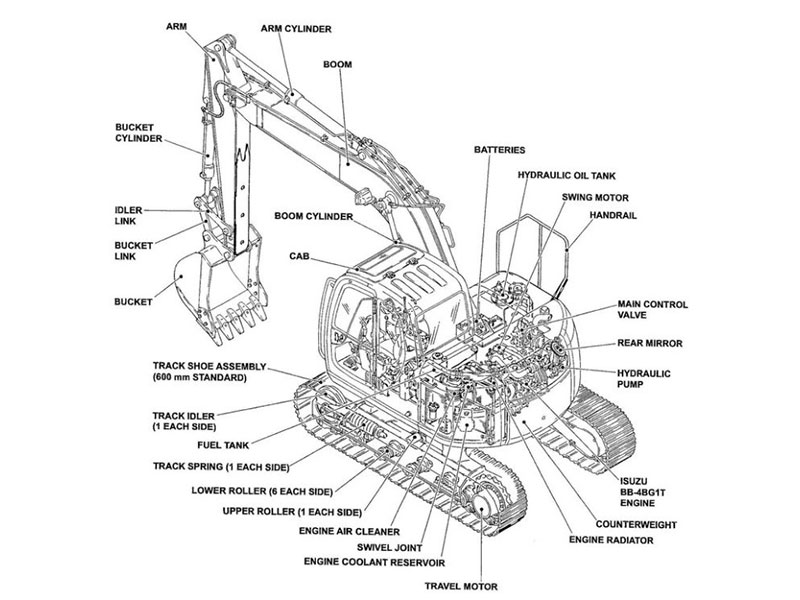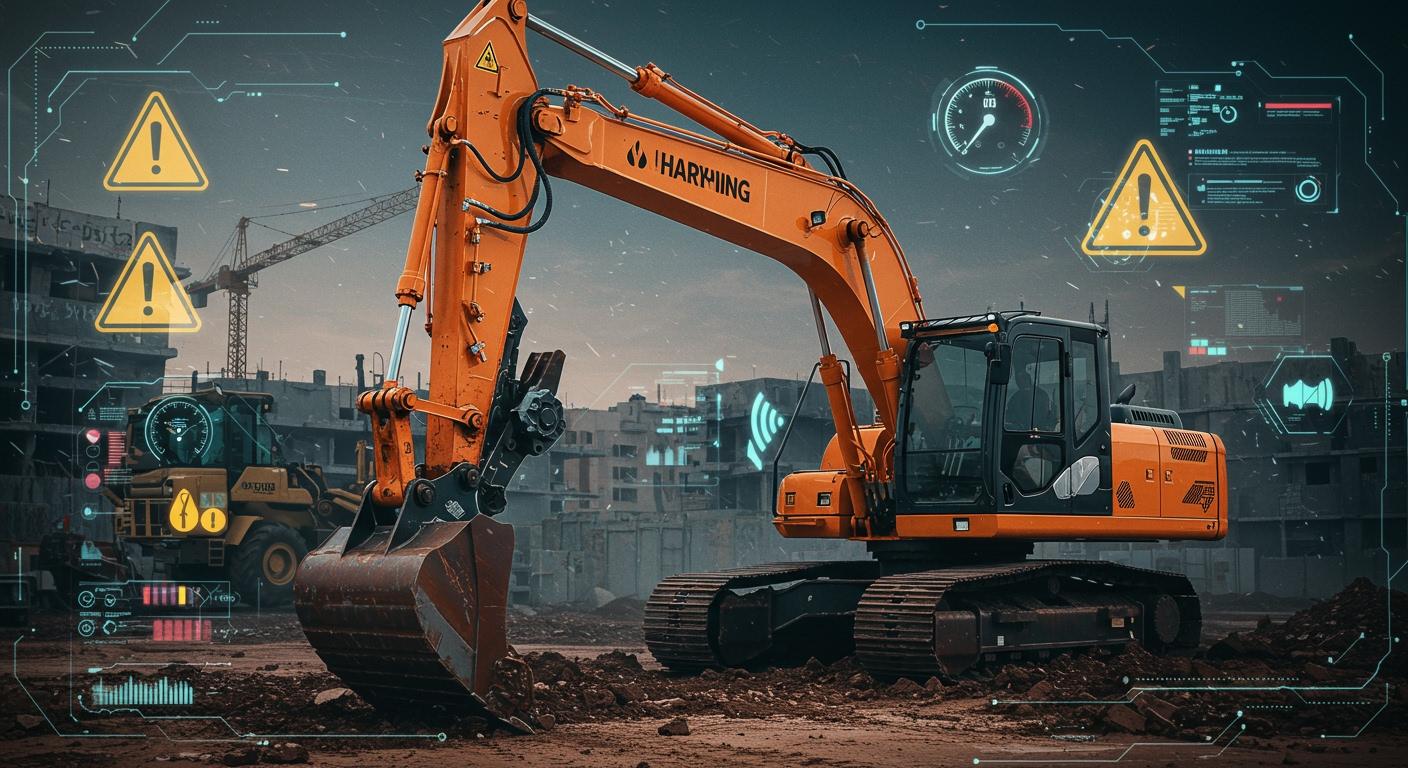
You can notice the main warning signs of hitachi excavator hydraulic pump failure if you know what to watch for. Look for these signs:
Leaks you can see or leaks you cannot see often show pressure is dropping.
Banging or knocking noises may mean air is stuck in the system.
High fluid temperatures over 82°C (180°F) can hurt seals.
Weak final drive motor power often means hydraulic pressure is low.
If you ignore these signs, you can get bigger and more expensive problems.
Key Takeaways
Look for leaks near your excavator. Leaks can lower hydraulic pressure. This can cause the pump to fail.
Listen for strange sounds like banging or knocking. These noises can mean air is in the system. They can also mean fluid levels are low.
Check if the machine gets too hot. Fluid hotter than 82°C (180°F) can hurt seals. This can make the pump fail.
Watch for power loss. Slow movement or weak lifting can mean low hydraulic pressure. It can also show pump problems.
Do regular maintenance. Use clean fluid. Check for leaks. Watch the temperature. This helps stop pump problems.
Warning Signs of Hydraulic Pump Failure
Leaks and Fluid Loss
Always look for leaks around your Hitachi excavator. Leaks can show up as puddles or wet spots near hoses, fittings, or the pump. Sometimes you do not see a leak, but the hydraulic fluid level drops faster than normal. Losing fluid can make the hydraulic fluid pressure drop suddenly. When pressure drops, the pump cannot give enough power to the system. Hydraulic leaks are a very common sign of hydraulic pump failure. If you ignore these signs, other parts of your machine can get damaged.
Tip: Wipe around hoses and connections with a clean rag. If you find fresh oil, you probably have a leak.
Unusual Noises
Strange noises are another big warning sign. When you use your Hitachi excavator, listen for sounds that do not belong. These noises can tell you if your hydraulic pump is healthy or not. Here is a table of common noises and what they might mean:
Type of Noise | Possible Cause |
|---|---|
Knocking or clicking | Worn plungers or cylinders causing uneven pressure |
Squeaking or grinding | Inadequate lubrication increasing friction |
Turbulence and noise | Faulty valve plates disrupting fluid flow |
Loud knocking | Low hydraulic fluid levels causing cavitation |
Increased friction and vibration | Contaminated fluid damaging internal pump components |
Rattling or buzzing | Damaged rotor or stator in the hydraulic motor |
Hissing or gurgling | Air trapped in the hydraulic cylinder |
Knocking | Worn seals or piston rods in the hydraulic cylinder |
High-pitched squeal | Overpressure in the relief valve |
Whistling or roaring | Dead bends in hydraulic pipes restricting fluid flow |
Rattling or clanging | Loose fixing clips on pipes and hoses |
If you hear banging, knocking, or grumbling, it often means air is in the system or fluid is low. These noises show the pump is having trouble and could fail soon.
Overheating
Overheating is a serious warning sign. If the hydraulic fluid gets hotter than 82°C (180°F), seals and other parts can get damaged. Overheating can cause the hydraulic pump to fail badly. You might feel the pump or hoses getting very hot, or see steam from the reservoir. High heat can also make the fluid thin, so it does not work well. Doing regular maintenance helps stop overheating and keeps your hydraulic system working longer.
Overheating can ruin the pump if you do not fix it fast.
If you ignore high heat, you might have to replace the pump.
Always check fluid levels and cooling systems to stop this problem.
Loss of Power
Losing power slowly or quickly is a very common sign of hydraulic pump failure. You might see the excavator moving slower or not lifting heavy things. Sometimes, the final drive motor feels weak or the machine cannot dig well. Low hydraulic fluid pressure means the pump cannot give enough force to the system. Banging and knocking sounds often happen with power loss, showing air is in the system. High fluid temperatures and poor performance are also signs of trouble. If you see these signs, act fast to stop more damage.
Erratic or Weak Movements
Jumpy or weak movements are clear warning signs. When you use the controls, the boom or arm might move in a jerky way or respond slowly. Weak movements can mean the pump is not giving enough flow. Internal leaks, worn valves, or problems with the pilot gear pump can cause these signs. You might also notice slow cycle times, high oil temperature, or less breakout force. These problems often show up before the pump fails completely. If you see erratic or weak movements, check for leaks, listen for strange noises, and watch the fluid temperature.
Note: Slow or odd operation often means the pump or valves need to be checked. Do not ignore these signs.
Common Symptoms of Hydraulic Pump Failure
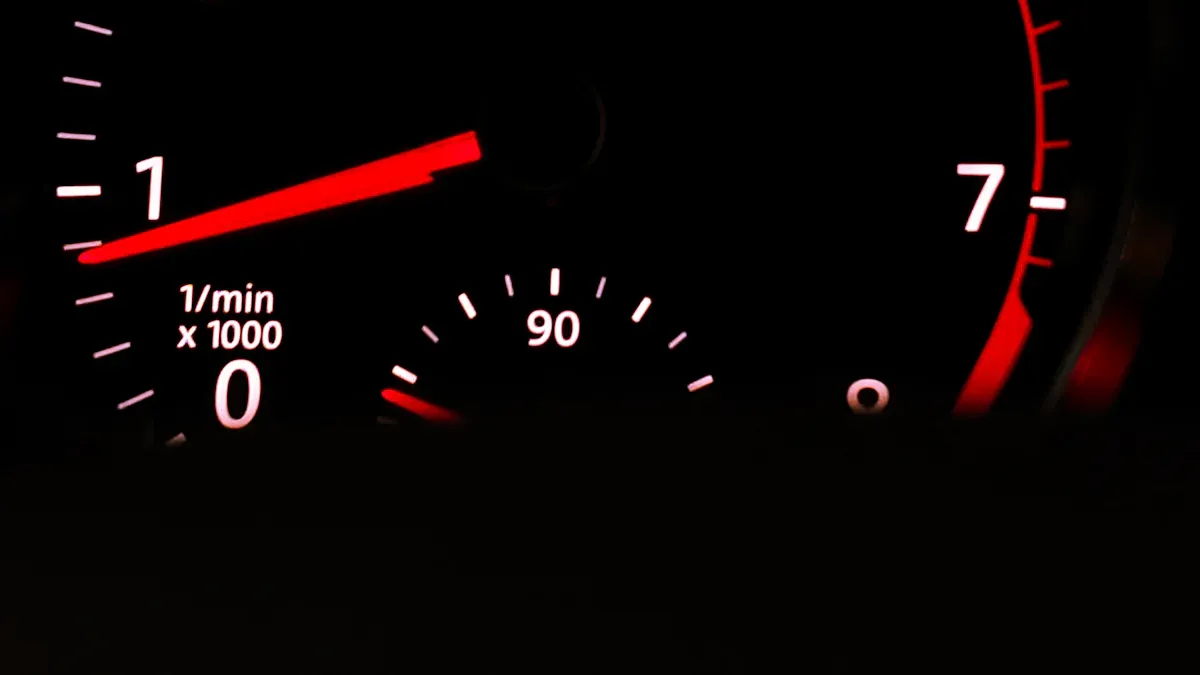
Decreased Performance
Your Hitachi excavator may not work as well. The machine could move slower than normal. It might have trouble lifting heavy things. Sometimes, the boom or arm stops or hesitates. These problems often mean pressure is low inside the hydraulic system. If the pump cannot keep up, you lose power and control. If you notice these signs, check the pump and other parts soon.
Engine Stalls Under Load
A working hydraulic pump helps the engine run smoothly. If the engine stops when you lift or dig, the pump may be failing. Low pressure in the hydraulic system makes the engine work harder. Overheating can also cause the engine to stall. You might hear the engine struggle or see it shut off when you use the controls. This means the hydraulic pump needs to be checked.
Note: Engine stalls often happen with overheating or weak movements. Look for more than one sign before you fix anything.
Changes in Hydraulic Fluid
Hydraulic fluid can show if your system is healthy. If the fluid looks different or smells odd, it may be contaminated. Dirty or foamy fluid can lower pressure and hurt the pump. Overheating breaks down fluid faster and damages seals and hoses. Always keep fluid temperature below 82°C (180°F). If the fluid gets too hot, failure is more likely.
Hydraulic fluid should stay under 82°C (180°F).
Overheating ruins fluid and hurts the system.
Ignoring fluid changes can cause pressure loss and failure.
Watch for these signs to keep your Hitachi excavator working well.
Causes and Prevention
Why Warning Signs Matter
Knowing warning signs early helps you stop hydraulic system failure. It keeps your Hitachi excavator safe. If you see sudden pressure drops, odd noises, or leaking seals, you can fix problems before they get worse. Acting early saves money and keeps your team safe. The table below shows how each warning sign can affect safety and cost:
Warning Sign | Implication |
|---|---|
Jumpy or Erratic Movements | Not smooth flow can make the job site unsafe. |
Unusual Noises | Cavitation or wear means you should check the system. |
Hydraulic Fluid Issues | Dirty or low fluid makes the system work poorly or fail. |
Hydraulic Leaks | Less pressure and efficiency can harm people and the environment. |
Overheating | Hot fluid and parts show the system is working too hard. |
Increased Fuel Consumption | Bad pump operation makes fuel costs go up. |
Common Causes
You should know what causes hydraulic pump failure to keep your machine working. The most common causes are:
Bad maintenance makes the pump work less well and can break it.
Not cleaning enough lets dirt in, which blocks and wears out parts.
Water, air, dust, or chemicals in the fluid cause rust, cavitation, and wear.
Using the equipment wrong puts stress on the system and causes overheating.
Very hot or dusty places make parts wear out faster.
Parts wear down from lots of use and make the pump weaker.
Leaking seals let fluid out, which drops pressure and slows the machine.
Dirty hydraulic fluid causes most pump failures. It makes the pump less efficient, uses more fuel, and gets too hot. Dirt and other stuff in the fluid wear out parts and make them break.
Preventive Tips
You can stop most hydraulic pump problems by doing simple maintenance. Try these tips to help your pump last longer:
Preventive Maintenance Practice | Description |
|---|---|
Clean hydraulic fluid | Use ISO 16/14 or better fluid for smooth running. |
Regular inspections | Find leaks, worn parts, or strange sounds early. |
Proper installation | Line up and tighten parts right to stop early failure. |
Monitor pressure and temperature | Watch these to keep the system from working too hard. |
Vibration analysis | Find misaligned or worn bearings before they break. |
Check filters and relief valves often. Look more if you work in tough places. Regular checks stop blockages and help you avoid hydraulic system failure. If you need good parts or expert help, YNF Machinery has Hitachi excavator hydraulic pump parts and maintenance solutions.
You should look for warning signs like leaks and overheating. Listen for strange noises from your excavator. These signs often show the hydraulic pump is losing power. Sometimes, it means the pump is working too hard. Checking your machine often helps you find problems early. You can fix small issues before they get worse.
Fixing problems quickly saves money and keeps your excavator working.
Doing simple maintenance, like checking fluid and changing old parts, helps your pump last longer. This keeps your work going without delays.
If you need good parts or help, YNF Machinery can help with hydraulic pump problems.
Warning Sign | Why It Matters |
|---|---|
Overpressure | Can break pump parts |
Air in Fluid | Makes the pump work less well |
Leaks | Makes the system weaker |
Beating Sounds | Shows the pump might be damaged |
High Temperature | Makes the pump wear out faster |
FAQ
What causes damage to a hitachi excavator hydraulic pump?
Damage can happen if you use dirty hydraulic fluid. Not fixing leaks or running with low fluid hurts the pump. Overheating and not doing maintenance also cause problems. Always check your hitachi excavator hydraulic pump for any trouble.
How often should you inspect your hitachi excavator hydraulic pump?
Check your hitachi excavator hydraulic pump once every week. Look for leaks, odd noises, or signs of wear. Regular checks help you find problems early and stop big repairs.
Can you repair a hitachi excavator hydraulic pump after damage?
Some damage can be fixed if you act fast. Small leaks or worn seals are simple to repair. If the damage is bad, you may need a new pump. Always ask YNF Machinery for help and good parts.
What happens if you ignore damage to your hitachi excavator hydraulic pump?
If you ignore damage, the pump can fail. Your excavator might lose power, slow down, or stop. Other parts can get damaged too. Fix problems early to save money and avoid big repairs.
How do you prevent damage to your hitachi excavator hydraulic pump?
Use clean hydraulic fluid and check for leaks often. Keep the pump cool and do regular maintenance. This helps your hitachi excavator hydraulic pump last longer. YNF Machinery has good parts and support if you need help.
